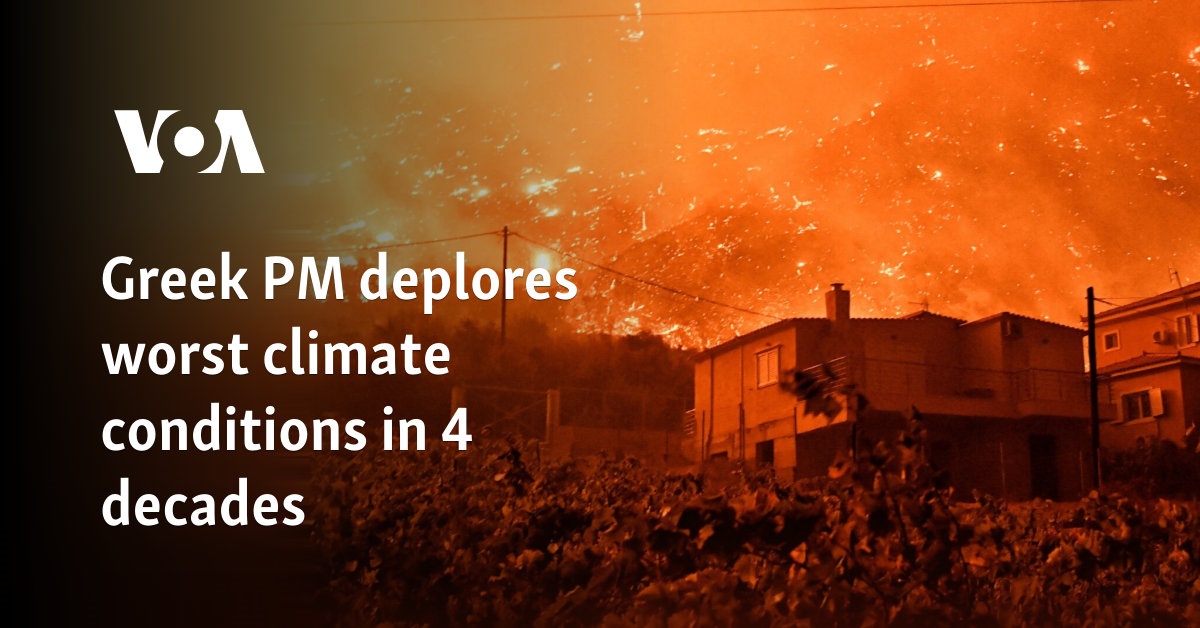Wildfire-plagued Greece has suffered its worst year in terms of climate conditions in four decades in 2024, its prime minister told parliament on Wednesday.
The already sun-baked Mediterranean region has been designated by scientists as a climate change “hotspot”, with warming higher than the global average, according to United Nations reports.
Greece has been perennially struck by scorching heatwaves and destructive wildfires every summer, with conditions worsening in recent years.
“We were expecting a very difficult year in terms of climate, it was objectively the most difficult in the past 40 years according to data by all scientists, including those from the national climate monitor,” Prime Minister Kyriakos Mitsotakis told parliament.
He pointed to “temperatures constantly higher than average”, “prolonged drought”, “strong winds”, adding that Greece needed to face the consequences of climate change.
The number of wildfires so far this year has reached 9,101, up from 7,163 last year, with 44,000 hectares (109,000 acres) burnt, the premier said during a parliamentary debate on the matter.
Forest blazes began earlier than normal this year, with one igniting at the end of March in the country’s north.
Greece experienced its hottest summer ever, Athens’s climate monitor said in September, with premature heatwaves in June, and record-high summer temperatures.
June and July were the warmest months since records began in 1960, while August was the second hottest after August 2021, the observatory said on its meteo.gr website.
More than 20 people died in Greek forest fires last year, with a massive blaze in Dadia national park dubbed the most destructive ever recorded in the European Union.
Rising temperatures are leading to extended wildfire seasons and increasing the area burnt by the blazes, according to the United Nations Intergovernmental Panel on Climate Change.
